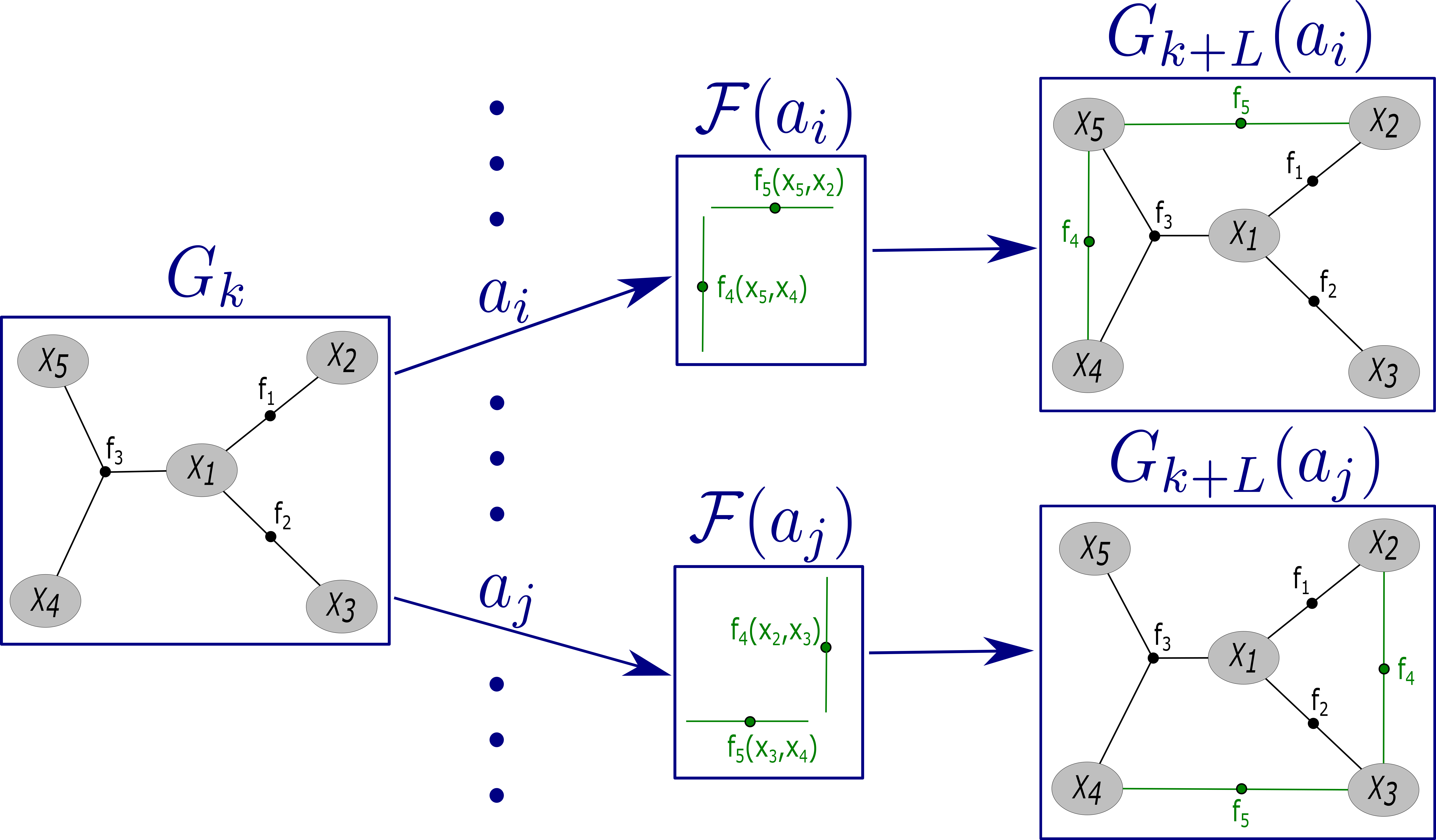To that end, we develop an augmented version of the matrix determinant lemma, and show that computations can be re-used when evaluating impact of different candidate actions. These two key ingredients and the factor graph representation of the problem result in a computationally-efficient (augmented) BSP approach that accounts for different sources of uncertainty and can be used with various sensing modalities. We examine the unfocused and focused instances of our approach, and compare it to the state of the art, in simulation and using real-world data, considering problems such as autonomous navigation in unknown environments, measurement selection and sensor deployment. We show that our approach significantly reduces running time without any compromise in performance.
Related Publications:
Journal Articles
- D. Kopitkov and V. Indelman, “General Purpose Incremental Covariance Update and Efficient Belief Space Planning via Factor-Graph Propagation Action Tree,” International Journal of Robotics Research (IJRR), no. 14, Sep. 2019.
- D. Kopitkov and V. Indelman, “Computationally Efficient Belief Space Planning via Augmented Matrix Determinant Lemma and Re-Use of Calculations,” IEEE Robotics and Automation Letters (RA-L), no. 2, 2017.
- D. Kopitkov and V. Indelman, “No Belief Propagation Required: Belief Space Planning in High-Dimensional State Spaces via Factor Graphs, Matrix Determinant Lemma and Re-use of Calculation,” International Journal of Robotics Research (IJRR), no. 10, 2017.
Technical Reports
- D. Kopitkov and V. Indelman, “General Purpose Incremental Covariance Update and Efficient Belief Space Planning via Factor-Graph Propagation Action Tree,” 2019.
Theses
- D. Kopitkov, “Efficient Belief Space Planning in High-dimensional State Spaces by Exploiting Sparsity and Calculation Re-use,” Master's thesis, Technion - Israel Institute of Technology, 2017.
Conference Articles
- D. Kopitkov and V. Indelman, “Computationally Efficient Active Inference in High-Dimensional State Spaces,” in AI for Long-term Autonomy, workshop in conjunction with IEEE International Conference on Robotics and Automation (ICRA), May 2016.
- D. Kopitkov and V. Indelman, “Computationally Efficient Decision Making Under Uncertainty in High-Dimensional State Spaces,” in IEEE/RSJ International Conference on Intelligent Robots and Systems (IROS), Oct. 2016.







